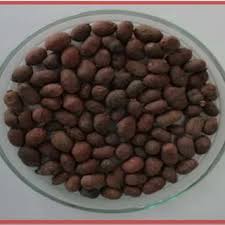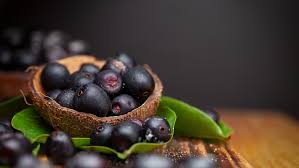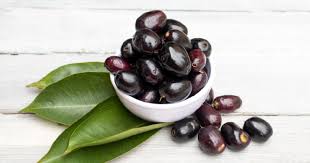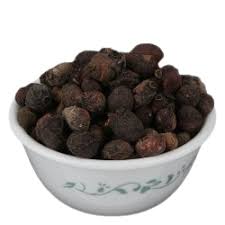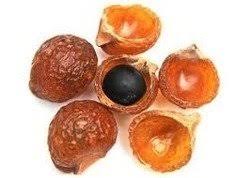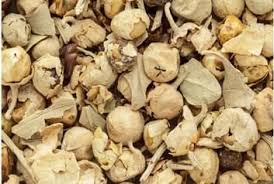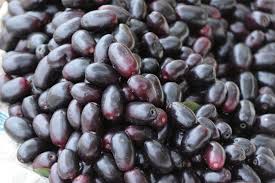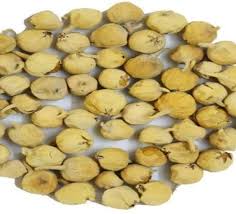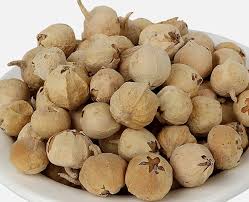
The Nutritional Profile of Jamun Guthli Seeds
Jamun Guthli (Jamun seed), derived from the black plum fruit known as Jamun (Syzygium cumini), has been an integral part of traditional Ayurvedic remedies for centuries. While the fruit is widely celebrated for its sweet-tangy flavor and diabetic-friendly properties, its seeds are nutritional powerhouses packed with numerous health-promoting elements. In this article, we’ll delve into the complete nutritional profile of Jamun Guthli seeds and explore why they deserve a place in your daily wellness routine.
Long Description:
What is Jamun Guthli?
Jamun, often called Indian blackberry, grows in abundance across the Indian subcontinent. Once the fruit is consumed, the large stone or seed inside is often discarded — but what many don’t realize is that this “waste” is a potent source of nutrition and therapeutic compounds. Jamun Guthli has been used in powdered or oil form for managing blood sugar, digestion, skin health, and more.
- Macronutrients Found in Jamun Guthli
1.1 Protein
Jamun seeds are known to contain a fair amount of plant-based protein. Though not high like pulses or legumes, the protein present is of high biological value, contributing to tissue repair and muscle maintenance.
1.2 Carbohydrates
The seeds are composed mainly of complex carbohydrates that provide a slow release of glucose, making them particularly beneficial for people with diabetes. The low glycemic index helps in maintaining blood sugar levels naturally.
1.3 Fats
Jamun Guthli contains a minimal amount of fat, mostly in the form of healthy essential fatty acids. This makes it suitable for those who are on a low-fat or heart-friendly diet.
- Micronutrients in Jamun Guthli
2.1 Iron
Iron is one of the primary minerals found in Jamun seeds. It aids in the formation of hemoglobin and helps prevent anemia, especially in women and children who are often iron-deficient.
2.2 Calcium
Jamun Guthli contains calcium, which is essential for strong bones and teeth. It also supports muscle contraction and blood clotting mechanisms in the body.
2.3 Magnesium
Magnesium in Jamun seeds assists with over 300 enzymatic reactions, including those responsible for regulating blood pressure, nerve function, and energy production.
2.4 Zinc
This essential trace element boosts immunity and accelerates wound healing. Zinc also plays a crucial role in reproductive health and metabolic function.
2.5 Potassium
A mineral that regulates heart function, muscle contractions, and fluid balance. Jamun Guthli’s potassium content makes it useful for managing blood pressure and supporting cardiovascular health.
- Phytochemicals and Antioxidants
Jamun Guthli is rich in various bioactive compounds:
3.1 Jamboline
This alkaloid slows down the diastatic conversion of starch into sugars, thereby helping manage hyperglycemia in diabetic patients.
3.2 Gallic Acid
Known for its antimicrobial and anti-inflammatory effects, gallic acid helps combat oxidative stress in the body.
3.3 Ellagic Acid
A powerful antioxidant that can help protect cells from damage and may reduce the risk of certain chronic diseases, including cancer.
3.4 Flavonoids
These compounds protect the body against cellular aging, inflammation, and oxidative damage, thus improving overall immunity and metabolic health.
- Fiber Content
Jamun Guthli is an excellent source of dietary fiber. Fiber helps regulate digestion, prevent constipation, and lower cholesterol levels. This makes it a helpful natural remedy for maintaining gut health. - Low Glycemic Index and Its Importance
Jamun Guthli is especially prized for its low glycemic index (GI), making it an ideal food for diabetics. A low GI means that it does not cause a rapid spike in blood sugar levels, which can be beneficial for long-term blood sugar control. - Anti-Inflammatory and Antimicrobial Properties
Due to the presence of bioactive compounds and antioxidants, Jamun Guthli exhibits strong anti-inflammatory and antimicrobial effects. This helps in managing chronic conditions like arthritis, skin diseases, and even minor infections. - Role in Liver Detoxification
The antioxidants and fiber present in Jamun seeds assist the liver in removing toxins efficiently. Regular consumption supports liver function and may prevent liver-related diseases. - Digestive Health Benefits
Jamun Guthli powder is often recommended in Ayurveda for treating gastric issues, including bloating, indigestion, and excessive acid production. The astringent nature of Jamun helps soothe the gastrointestinal tract. - Jamun Guthli and Blood Purification
Thanks to its antioxidant properties and iron content, Jamun Guthli helps purify the blood. This leads to clearer skin, better organ function, and reduced risk of infections. - Application in Traditional Medicine
In Ayurveda and Unani medicine, Jamun Guthli is used in the following ways:
Powder: Mixed with warm water or milk for diabetic and digestive health.
Oil: Applied to the skin for treating acne and rashes.
Capsules: Used as a supplement for long-term maintenance of blood sugar and immunity.
- Recommended Dosage and Usage
Powder: 1-2 teaspoons daily, mixed with water or buttermilk.
Capsules: As directed by a healthcare provider.
Oil: Topical application once or twice daily for skin issues.
Always consult a qualified practitioner before starting any herbal supplement, especially if you are pregnant, nursing, or on medication.
- Who Should Avoid Jamun Guthli?
People with hypoglycemia (low blood sugar)
Those allergic to Jamun
Individuals undergoing surgery (due to its effect on blood sugar)
Conclusion: Why Include Jamun Guthli in Your Diet?
Jamun Guthli is more than just a traditional remedy — it’s a modern-day superfood backed by ancient wisdom and emerging scientific evidence. With its rich nutritional content, antioxidant power, and impressive health benefits, Jamun Guthli deserves a spot in your wellness routine. From boosting immunity to managing diabetes, supporting digestion to detoxifying the liver — this humble seed can do it all.


